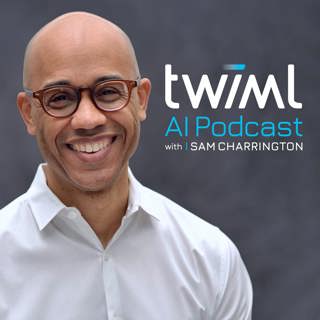
The Next Generation of Self-Driving Engineers with Aaron Ma - Talk #318
Today we’re joined by our youngest guest ever (by far), Aaron Ma, an 11-year-old middle school student and machine learning engineer in training. Aaron has completed over 80(!) Coursera courses and is the recipient of 3 Udacity nano-degrees. In our conversation, we discuss Aaron’s research interests in reinforcement learning and self-driving cars, his journey from programmer to ML engineer, his experiences participating in kaggle competitions, and how he balances his passion for ML with day-to-day life.
18 Nov 201947min

Spiking Neural Networks: A Primer with Terrence Sejnowski - #317
On today’s episode, we’re joined by Terrence Sejnowski, to discuss the ins and outs of spiking neural networks, including brain architecture, the relationship between neuroscience and machine learning, and ways to make NN’s more efficient through spiking. Terry also gives us some insight into hardware used in this field, characterizes the major research problems currently being undertaken, and the future of spiking networks.
14 Nov 201949min

Bridging the Patient-Physician Gap with ML and Expert Systems w/ Xavier Amatriain - #316
Today we’re joined by return guest Xavier Amatriain, Co-founder and CTO of Curai, whose goal is to make healthcare accessible and scaleable while bringing down costs. In our conversation, we touch on the shortcomings of traditional primary care, and how Curai fills that role, and some of the unique challenges his team faces in applying ML in the healthcare space. We also discuss the use of expert systems, how they train them, and how NLP projects like BERT and GPT-2 fit into what they’re building.
11 Nov 201939min

What Does it Mean for a Machine to "Understand"? with Thomas Dietterich - #315
Today we have the pleasure of being joined by Tom Dietterich, Distinguished Professor Emeritus at Oregon State University. Tom recently wrote a blog post titled "What does it mean for a machine to “understand”, and in our conversation, he goes into great detail on his thoughts. We cover a lot of ground, including Tom’s position in the debate, his thoughts on the role of systems like deep learning in potentially getting us to AGI, the “hype engine” around AI advancements, and so much more.
7 Nov 201938min

Scaling TensorFlow at LinkedIn with Jonathan Hung - #314
Today we’re joined by Jonathan Hung, Sr. Software Engineer at LinkedIn. Jonathan presented at TensorFlow world last week, titled Scaling TensorFlow at LinkedIn. In our conversation, we discuss their motivation for using TensorFlow on their pre-existing Hadoop clusters infrastructure, TonY, or TensorFlow on Yard, LinkedIn’s framework that natively runs deep learning jobs on Hadoop, and its relationship with Pro-ML, LinkedIn’s internal AI Platform, and their foray into using Kubernetes for research.
4 Nov 201935min

Machine Learning at GitHub with Omoju Miller - #313
Today we’re joined by Omoju Miller, a Sr. machine learning engineer at GitHub. In our conversation, we discuss: • Her dissertation, Hiphopathy, A Socio-Curricular Study of Introductory Computer Science, • Her work as an inaugural member of the Github machine learning team • Her two presentations at Tensorflow World, “Why is machine learning seeing exponential growth in its communities” and “Automating your developer workflow on GitHub with Tensorflow.”
31 Okt 201943min

Using AI to Diagnose and Treat Neurological Disorders with Archana Venkataraman - #312
Today we’re joined by Archana Venkataraman, John C. Malone Assistant Professor of Electrical and Computer Engineering at Johns Hopkins University. Archana’s research at the Neural Systems Analysis Laboratory focuses on developing tools, frameworks, and algorithms to better understand, and treat neurological and psychiatric disorders, including autism, epilepsy, and others. We explore her work applying machine learning to these problems, including biomarker discovery, disorder severity prediction and mor
28 Okt 201946min

Deep Learning for Earthquake Aftershock Patterns with Phoebe DeVries & Brendan Meade - #311
Today we are joined by Phoebe DeVries, Postdoctoral Fellow in the Department of Earth and Planetary Sciences at Harvard and Brendan Meade, Professor of Earth and Planetary Sciences at Harvard. Phoebe and Brendan’s work is focused on discovering as much as possible about earthquakes before they happen, and by measuring how the earth’s surface moves, predicting future movement location, as seen in their paper: ‘Deep learning of aftershock patterns following large earthquakes'.
25 Okt 201936min






















